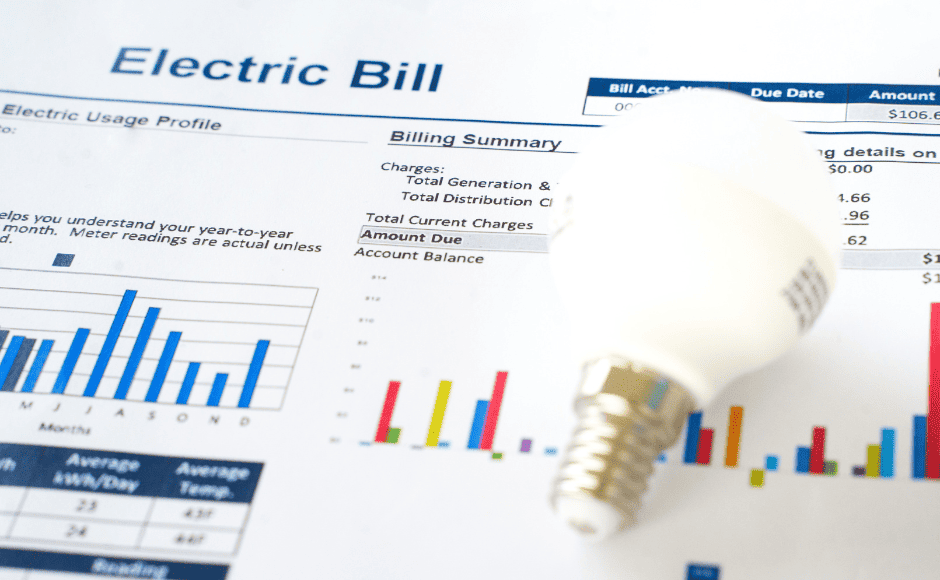
Whether you’ve just moved into your first home as an independent adult or are a longtime homeowner, it’s no secret that energy bills can be tough to decipher sometimes, particularly if you live in a state with special energy considerations, like Michigan. Do you really know what you’re paying for?
Understanding your energy bills—in most cases, your natural gas and electric bills—is crucial not just for effectively managing your overall household expenses, but for reducing your energy use and costs. Here’s what you need to know.
How to Read a Gas Bill
Your natural gas bill consists of your actual usage plus other service charges and taxes. The primary measure on a natural gas bill is the “therm,” which quantifies the amount of heat energy used in each billing period. Your natural gas meter records the number of therms used each month. Apart from this usage, you’re also likely paying other costs that typically account for about 35–40 percent of your bill, such as:
- Customer charge. This is a fixed monthly fee covering the utility’s service costs, like billing and meter reading.
- Delivery charge. This varies monthly based on the amount of gas used and covers the cost of delivering gas to your home.
- Storage service charge. This fee, which changes monthly, is for storing your gas supply.
- Gas charge. This reflects the cost per unit of the gas itself and can vary significantly based on current natural gas prices.
- Qualified infrastructure plant charge. This is a variable charge that helps fund infrastructure maintenance and upgrades.
- Additional taxes and fees. These smaller charges may include an Energy Efficiency Program charge, among others.
Since you likely can’t control your natural gas delivery or distribution costs, if you want to lower your bill, you’ll need to target the 60–65 percent of it that reflects actual energy usage.
How to Read Your Electric Bill
Like gas bills, electric bills can be fairly complex. The “energy charge” is the cost of the electricity you’ve used in a billing cycle, while other charges consist of the following:
- Meter reading. This service covers the reading of your electricity meter. Traditional meters are read manually by a utility employee, while smart meters are read remotely.
- Distribution charge. This fee covers the costs for infrastructure (like substations and transformers) to deliver electricity from the transmission system to end users. It’s based on the number of kilowatt-hours (kWh) used.
- Energy efficiency optimization. These are monthly charges for both business and residential customers to fund energy efficiency programs. These programs promote the use of efficient technologies to reduce electricity consumption by offering rebates and incentives.
- Nuclear decommissioning surcharge. This charge covers the closure and removal of nuclear generation plants in states that have nuclear reactors. For example, Michigan has four of these in operation.
- Renewable Energy Plan surcharge. In states like Michigan, this surcharge recovers costs for utility renewable energy programs like solar and wind power construction that allow the state to meet renewable generation standards.
- System access/customer charge. Separate from energy charges, this fee covers the use of an electric meter and billing.
Understanding your natural gas and electric bills is key to managing your energy consumption and expenses more effectively. By familiarizing yourself with the different components and charges, you can make more informed decisions and find practical ways to reduce your energy costs.
Conquer Your Energy Bills with Michigan Saves
Along with any DIY energy improvements you make as a Michigander, Michigan Saves can help keep your energy bills down—now and all year long. Our financing can help you quickly turn your home or business into a comfortable and energy-efficient space by paying for virtually any energy upgrade you need.
If saving money and energy is your goal, you’re in good hands. Get professional help from one of our authorized Michigan contractors in your area. Start saving with us today!


